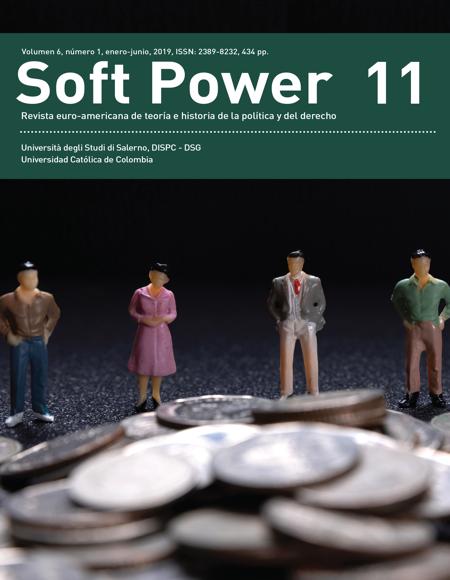Resumen
Este artículo defiende la centralidad de la noción de lucha de clases tanto en la teoría política como en la práctica para contrarrestar lo que EM Wood, haciendo eco de P. Anderson (1983), ha denominado la «aleatorización de la política» (1986), a saber: la política reducida a la contingencia pura donde no se permite la causalidad entre lo social y lo político. Sugiere que la lucha de clases es precisamente la causa perdida de la política radical, ya que la lucha de clases funciona como un principio sintético que informa un concepto de la sociedad en su conjunto y una visión del antagonismo como una instancia sistémica y totalista. Sobre la base de la «filosofía de la estrategia» de Daniel Bensaïd y su lectura crítica de la teoría de clases de Marx (Bensaïd, 1995; 2002; 2011; 2016), el artículo sugiere que la lucha de clases se reconsidere como un nuevo «universalismo estratégico» a través de la división internacional del trabajo. En la línea de la comprensión de Bensaïd de la política como un «arte estratégico» de reinicio (Bensaïd, 1995), se argumentará aquí que la política radical no puede prescindir de la lucha de clases o del partido.
Palabras clave

Citas
Anderson, P. (1983). In the Tracks of Historical Materialism. London: Verso.
Balibar, E. (2016). Des universels. Essais et conférences. Paris: Editions Galilée.
Balibar, E. & I. Wallerstein (1991). Race, Nation and Class. Ambiguous Identities. London: Verso.
Bensaïd, D. (1968). La notion de crise révolutionnaire chez Lénine. Le site Daniel Bensaïd. http://danielbensaid.org/La-notion-de-crise-revolutionnaire-chez-Lenine?lang=fr
Bensaïd, D. (1991). Le pari mélancolique. Paris: Fayard.
Bensaïd, D. (1992). Classes : théorie et pratique. Le site Daniel Bensaïd. http://danielbensaid.org/Classes-theorie-et-pratique?lang=fr#nb4
Bensaïd, D. (1995). La discordance des temps. Essais sur les crises, les classes, l’histoire. Paris: Editions de la passion.
Bensaïd, D. (1996). Travailler pour l’incertain (Le Monde, 22 August). Le site Daniel Bensaïd. http://danielbensaid.org/Travailler-pour-l-incertain?lang=fr
Bensaïd, D. (1997). Lénine ou la politique du temps brisé. Le site Daniel Bensaïd. http://danielbensaid.org/Lenine-ou-la-politique-du-temps-brise?lang=fr
Bensaïd, D. (2000). Le Sourire du spectre. Paris: Editions Michalon.
Bensaïd, D. (2002). Marx for Our Times. Adventures and Misadventures of a Critique. London: Verso.
Bensaïd, D. (2006). Moment utopique et refondation stratégique. Le site Daniel Bensaïd. http://danielbensaid.org/Moment-utopique-et-refondation-strategique?lang=fr
Bensaïd, D. (2007). Leaps! Leaps! Leaps!. In S. Budgen, S. Kouvelakis and S. Žižek (Eds.) Lenin Reloaded. Toward a Politics of Truth. Durham: Duke University Press, 148-163.
Bensaïd, D. (2013). An Impatient Life. A Memoir, London: Verso.
Bensaïd, D. (2008a). Eloge de la politique profane. Paris: Albin Michel.
Bensaïd, D. (2008b). La preuve par la bourgeoisie. Le site Daniel Bensaïd. http://danielbensaid.org/La-preuve-par-la-bourgeoisie?lang=fr
Bensaïd, D. (2008c). Politiques de Marx. In F. Engels and K. Marx, Inventer l’inconnu. Textes et correspondance autour de la Commune. Paris: La Fabrique, pp. 11-103.
Bensaïd, D. (2011). La politique comme art stratégique. Paris: Syllepses.
Bensaïd, D., Palheta U. & J. Salingue (2016). Stratégie et Parti. Paris: Les prairies ordinaires.
Boltanski L. & E. Chiapello (2007). The New Spirit of Capitalism. London: Verso.
Bourdieu, P. (1984). Espace social et genèse des «classes». Actes de la recherche en sciences sociales, vol. 52-53 (“Le travail politique”), pp. 3-14.
Buffet, W. (2005). Buffett: «There are lots of loose nukes around the world» (interview with L. Dobbs). http://edition.cnn.com/2005/US/05/10/buffett/index.html
Chibber, V. (2017). Rescuing Class from the Cultural Turn, Catalyst, 1(1). https://catalyst-journal.com/vol1/no1/cultural-turn-vivek-chibber
Cohen, G. A. (1978). Karl Marx’s Theory of History: A Defence. Oxford: Clarendon Press.
Elster, J. (1985). Making Sense of Marx. Cambridge: Cambridge University Press.
Fassin, E. (2018). Populism Left and Right. Chicago: Prickly Paradigm Press.
Fassin, E. et al. (2018). Left-wing Populism. A Legacy of Defeat. Interview with E. Fassin. Radical Philosophy, 2.02, 79-92.
Fisher, M. (2009). Capitalist Realism: Is There No Alternative? London: Zero Books.
Foley, B. (2018). Intersectionality: A Marxist Critique. Monthly Review online. https://mronline.org/2018/10/22/intersectionality-a-marxist-critique/
Goldmann, L. (2016). The Hidden God. Londin: Penguin Random House.
Gorz, A. (1982). Farewell to the Working Class. London: Pluto Press.
Gorz, A. (1989). Critique of Economic Reason. London: Verso.
Hall, S. (1986). The Problem of Ideology-Marxism without Guarantees. Journal of Communication Inquiry, 10 (2), 28-44.
Hardt, M. & A. Negri (2004). Multitude. War and Democracy in the Age of Empire. London: Penguin Books.
Hegel, G.W.F. (2010). The Science of Logic. Cambridge: Cambridge University Press.
Jameson, F. (1988). Cognitive Mapping. In: C. Nelson & L. Grossberg (Eds.) Marxism and the Interpretation of Culture (pp. 347-360). Chicago: University of Illinois Press.
Kouvelakis, S. (2010). Daniel Bensaïd : La dialectique du temps et de la lutte. Lignes, 2(32), 59-66.
Laclau, E. & C. Mouffe (1985). Hegemony and Socialist Strategy. London: Verso.
Laclau, E. (2005). On Populist Reason. London: Verso.
Lenin, V. I. (1987). What is to be done?. In Essential Works of Lenin: “What Is to Be Done?” and Other Writings. New York: Dover Publications.
Lowy, M. (2005). Le pari mélancolique de Daniel Bensaïd. Le site Daniel Bensaïd. http://danielbensaid.org/Le-pari-melancolique-de-Daniel-Bensaid?lang=fr
Marx, K. (2008) The Eighteenth Brumaire of Louis Bonaparte. New York: Cosimo.
Mascat, J.M.H. (2018). Hegel and the Advent of Modernity. A Social Ontology of Abstraction. Radical Philosophy, 2.01, 29-46.
Mouffe, C. (1983). Working Class Hegemony and the Struggle for Socialism. Studies in Political Economy, 12, 8-26.
Mouffe, C. 2018. For a Left Populism. London: Verso.
Poulantzas, N. (1978). Classes in Contemporary Capitalism. London: Verso.
Rifkin, J. (1995). The End of Work: The Decline of the Global Labor Force and the Dawn of the Post-Market Era. New York: Putnam Publishing.
Roemer, J. (1982). A General Theory of Exploitation and Class. Cambridge: Harvard University Press.
Roemer, J. (Ed.). (1986). Analytical Marxism. Cambridge: Cambridge University Press.
Roso, D. & F. Mascaro Querido (2015). Daniel Bensaïd, une politique de l’opprimé. De l’actualité de la revolution au pari mélancholique. Période. http://revueperiode.net/daniel-bensaid-une-politique-de-lopprime-de-lactualite-dela-revolution-au-pari-melancolique/
Smith, S. (2017). A Marxist Case for Intersectionality. Socialist Worker. https://socialistworker.org/2017/08/01/a-marxist-case-for-intersectionality
Thompson, E. P. (1963). The Making of the English Working Class. New York: Vintage Books.
Tronti, M. (2010). Il populismo. Democrazia e diritto, 3/4, 9-15.
Wood, E. M. (1986). The Retreat from Class. London: Verso.














